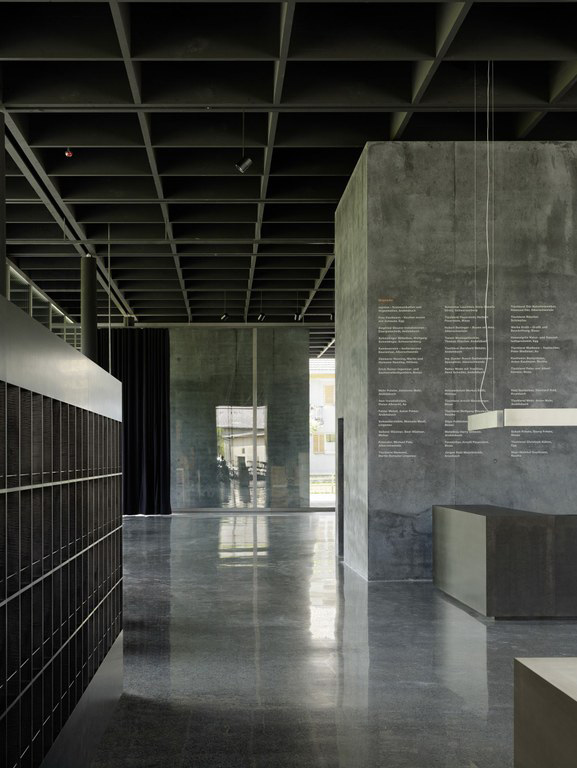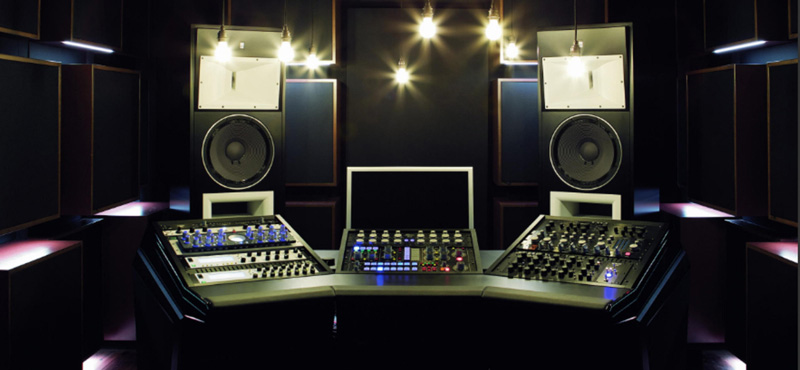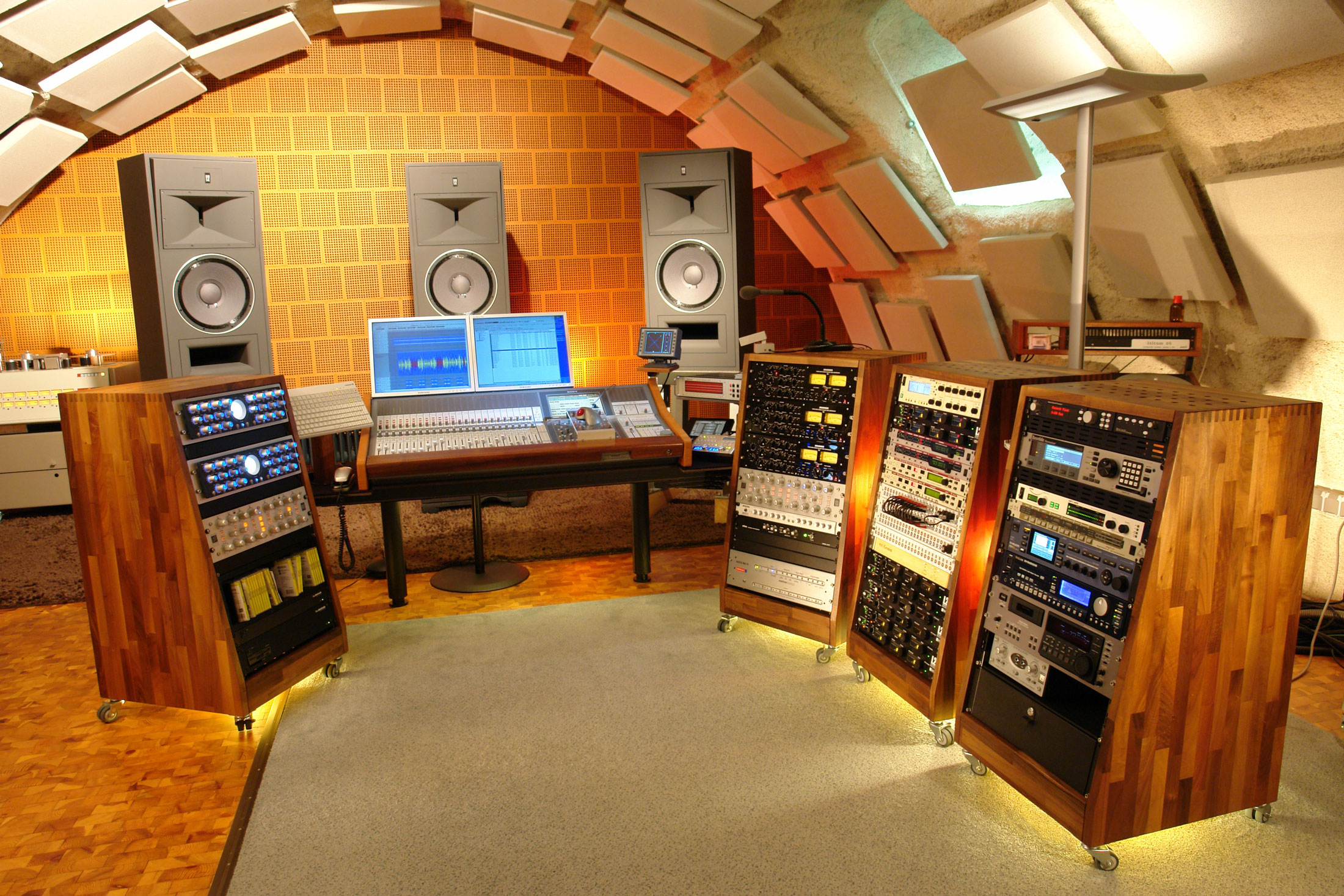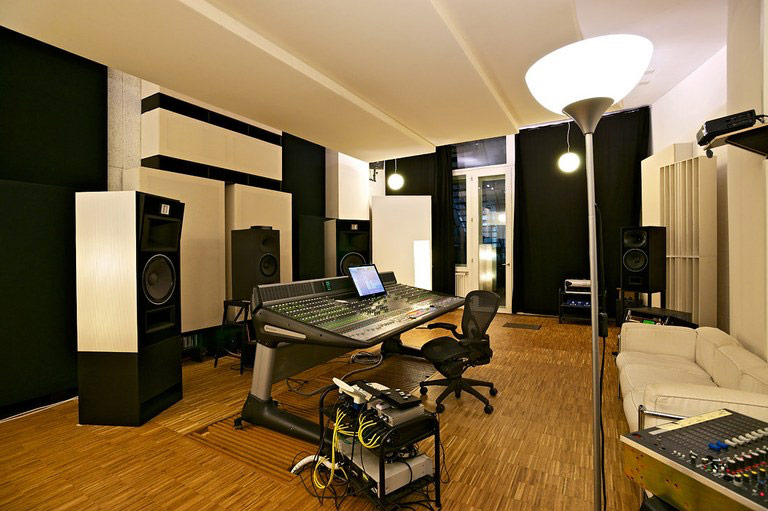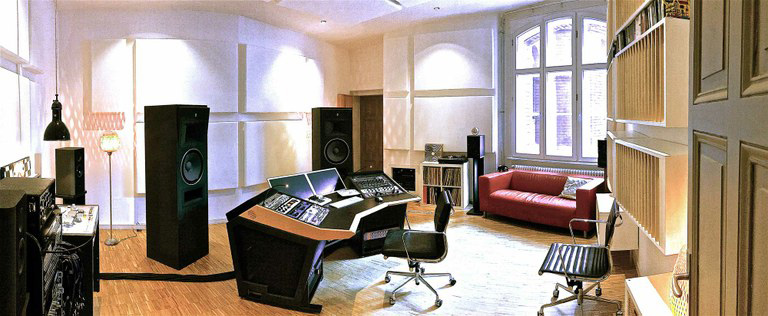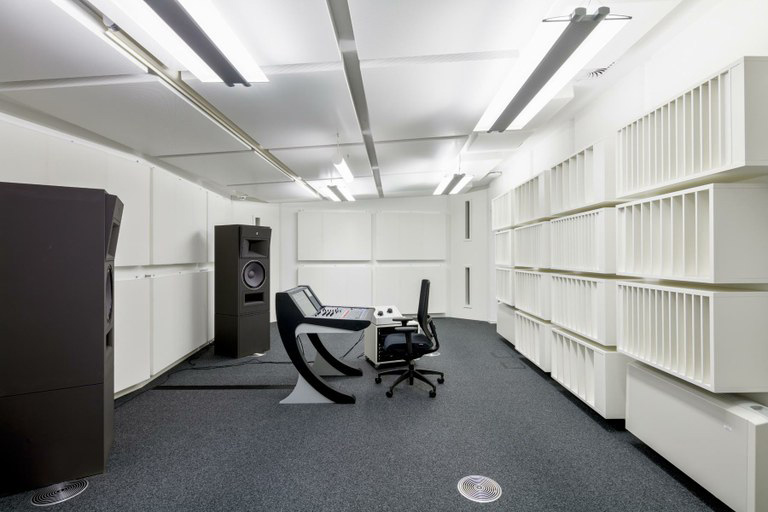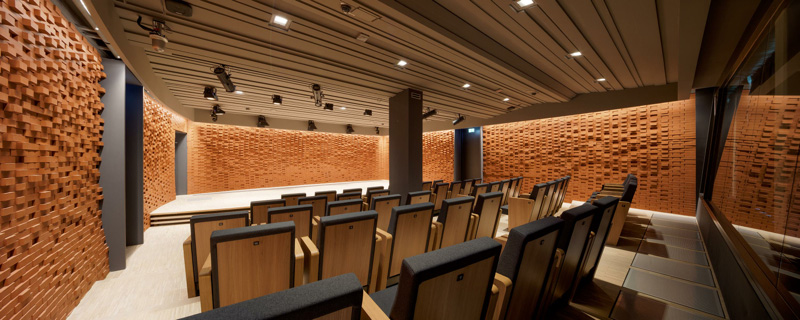Architect: Christian Kerez, Zurich
Acoustic design: STRAUSS ELEKTROAKUSTIK, Bern
In conjunction with the architect Christian Kerez, we are developing an acoustic design for the Museum of Modern Art Warsaw which is currently at the planning stage: from the underground railway station to the foyers and restaurants, all the way to the exhibition spaces, cinema, theatre and auditorium. An example of the collaboration is the Huge Hall shown here which is intended to be grand in scale not only visually but also acoustically. In these cathedral-like acoustics – the reverberation time is around 10 seconds – the intention is to make footsteps as much of an experience as sound installations or specific plays and music performances relayed by a multi-channel, architecturally integrated sound system.


